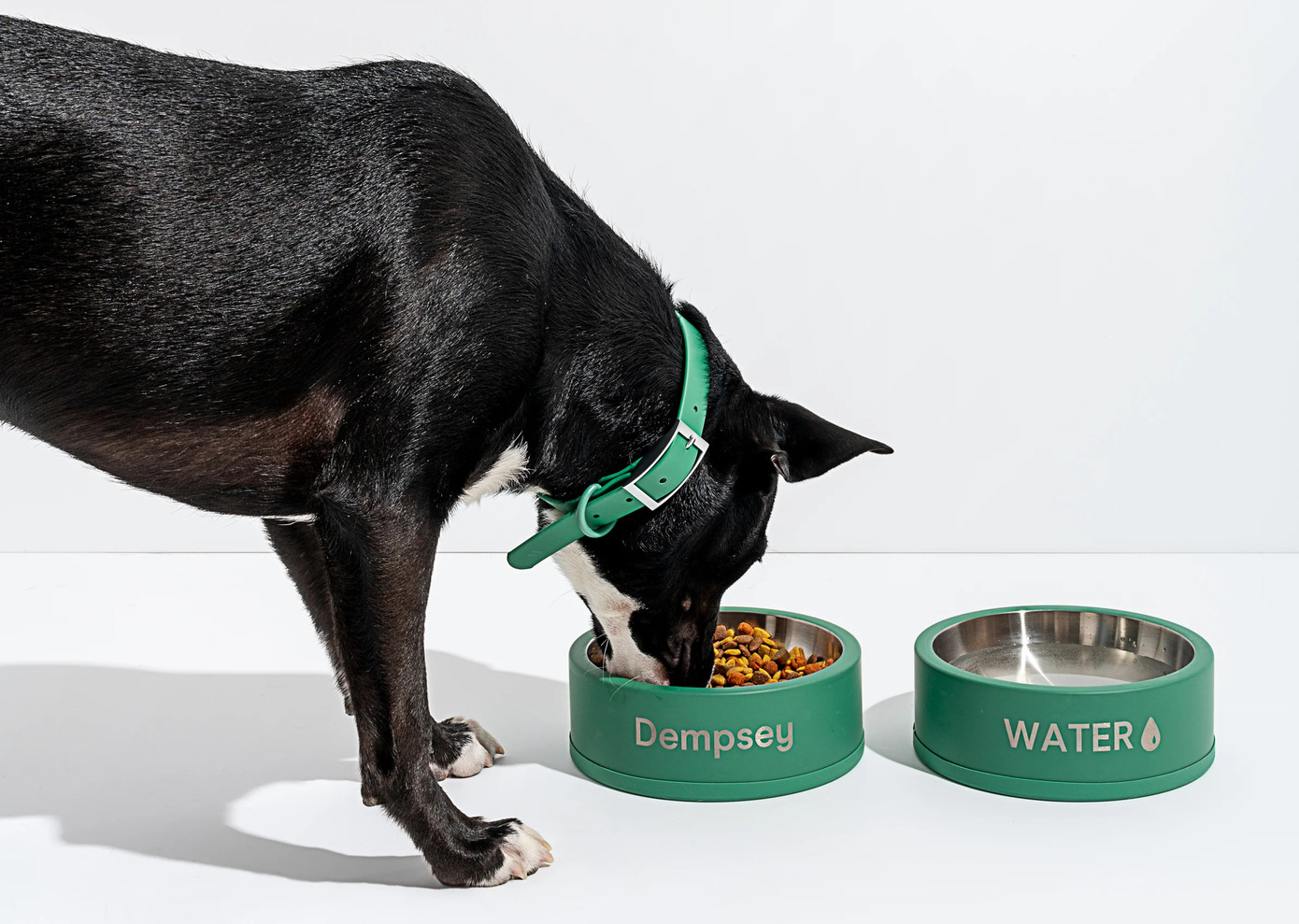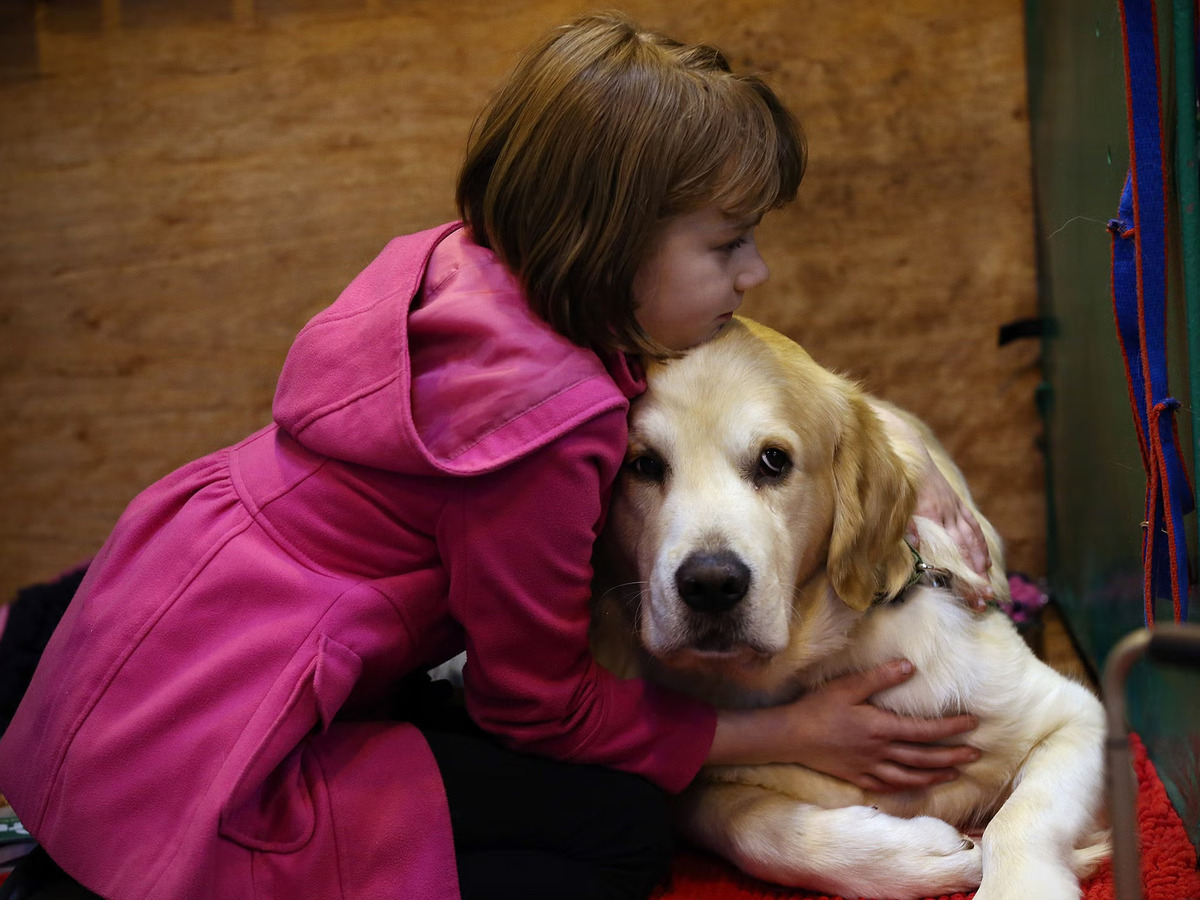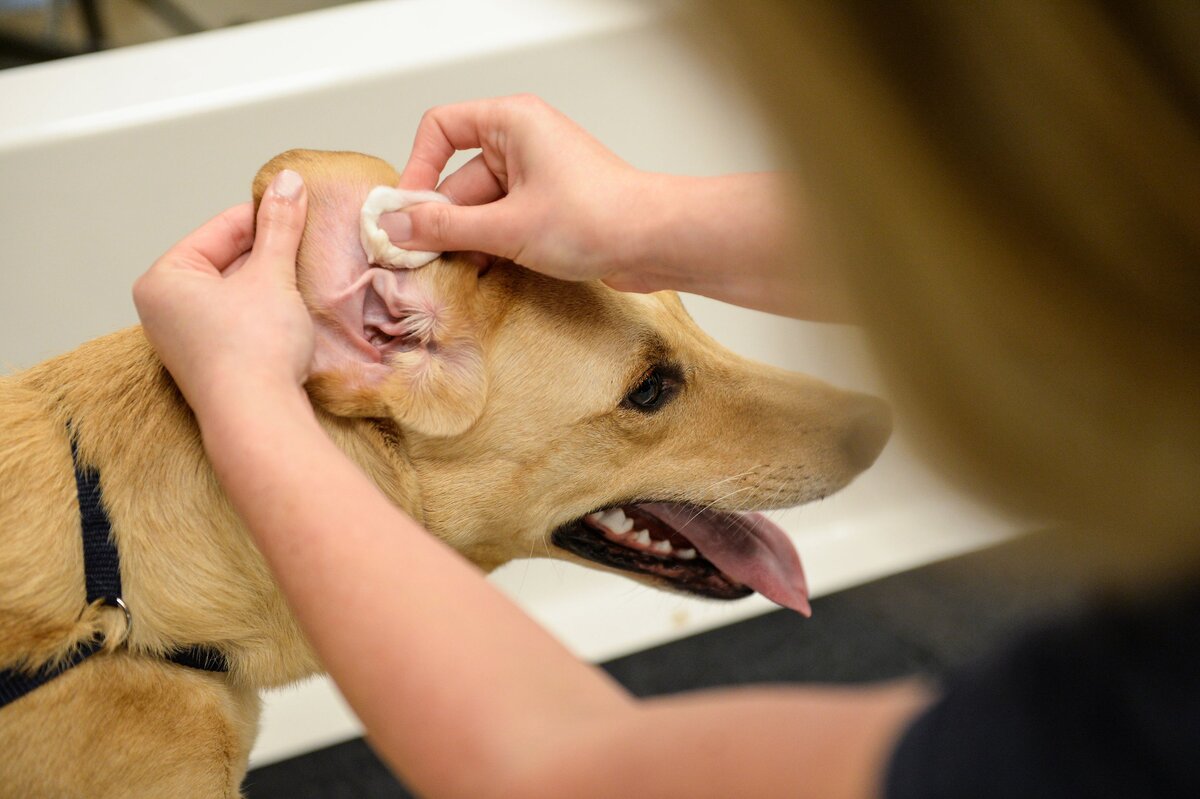Home>Health & Wellness>Common Health Issues>What To Do For Dogs With Chicken Allergies


Common Health Issues
What To Do For Dogs With Chicken Allergies
Published: January 26, 2024
If your dog has chicken allergies, learn how to manage this common health issue and keep your furry friend happy and healthy. Discover effective strategies and tips for dealing with chicken allergies in dogs.
(Many of the links in this article redirect to a specific reviewed product. Your purchase of these products through affiliate links helps to generate commission for Pawsomeoldies.com, at no extra cost. Learn more)
Table of Contents
Understanding Chicken Allergies in Dogs
Chicken allergies in dogs are a common health concern that can cause discomfort and distress. Just like humans, dogs can develop allergies to certain foods, and chicken is a frequent culprit. An allergy occurs when a dog's immune system overreacts to the proteins found in chicken, triggering a range of symptoms that can impact their overall well-being.
When a dog with a chicken allergy ingests chicken or products containing chicken, their immune system identifies the proteins as harmful invaders. This prompts the release of histamines and other chemicals, leading to allergic reactions. The body's response can manifest in various ways, such as skin irritation, gastrointestinal issues, and respiratory problems.
Understanding the signs of a chicken allergy in dogs is crucial for prompt identification and management. Common symptoms include itching, redness, and inflammation of the skin, often leading to excessive scratching or licking. Additionally, dogs may experience digestive disturbances like vomiting, diarrhea, or flatulence after consuming chicken-based foods. In some cases, allergic reactions can extend to respiratory symptoms, such as sneezing, coughing, or wheezing.
It's important to note that chicken allergies can develop at any stage of a dog's life, even if they have previously consumed chicken without any adverse effects. The immune system's response to allergens can change over time, leading to the sudden onset of allergic reactions.
By recognizing the underlying mechanisms of chicken allergies in dogs, pet owners can take proactive measures to address their furry companions' health needs. This understanding empowers them to make informed decisions regarding their dog's diet and seek appropriate veterinary care to alleviate allergy-related discomfort.
Identifying Symptoms of Chicken Allergies in Dogs
Recognizing the symptoms of chicken allergies in dogs is essential for pet owners to provide timely intervention and alleviate their furry companions' discomfort. While dogs may exhibit a range of allergic reactions, specific signs can indicate a potential chicken allergy.
Skin Irritation
One of the most prevalent indicators of a chicken allergy in dogs is skin irritation. This can manifest as redness, itching, and inflammation, often leading to excessive scratching, biting, or licking. Pet owners may notice their dog constantly pawing at their ears, rubbing their face against furniture, or displaying discomfort when touched. Additionally, skin rashes, hot spots, and hair loss may occur in localized areas, signaling an allergic response to chicken proteins.
Gastrointestinal Disturbances
Dogs with chicken allergies may experience digestive disturbances after consuming chicken-based foods. This can include vomiting, diarrhea, or flatulence, which may occur shortly after ingestion or persist as ongoing gastrointestinal discomfort. Pet owners should be attentive to changes in their dog's bowel movements, consistency of stools, and any signs of abdominal discomfort or distress.
Respiratory Symptoms
In some cases, allergic reactions to chicken can extend to respiratory symptoms in dogs. This may present as sneezing, coughing, or wheezing, indicating potential respiratory distress triggered by exposure to chicken proteins. Pet owners should observe their dog's breathing patterns and monitor for any unusual sounds or behaviors that could suggest respiratory issues.
Ear Infections
Dogs with chicken allergies may be prone to developing ear infections as a result of their immune system's response to allergens. Symptoms of ear infections can include head shaking, ear scratching, foul odor from the ears, redness or swelling of the ear canal, and discharge. These signs may indicate an allergic reaction affecting the ears, requiring prompt attention and veterinary care.
Behavioral Changes
Allergic reactions can also lead to behavioral changes in dogs. They may appear restless, irritable, or lethargic due to the discomfort caused by allergic symptoms. Additionally, changes in appetite, water consumption, or overall demeanor may signal underlying allergic reactions, prompting pet owners to seek further evaluation.
By being attentive to these potential symptoms, pet owners can effectively identify and address chicken allergies in their dogs, promoting their furry companions' well-being and comfort. Early recognition of allergic reactions enables pet owners to take proactive measures, such as modifying their dog's diet and seeking veterinary guidance to manage chicken allergies effectively.
Eliminating Chicken from Your Dog's Diet
When a dog is diagnosed with a chicken allergy or suspected of having a sensitivity to chicken, it becomes imperative for pet owners to take proactive steps to eliminate chicken from their diet. This process involves careful scrutiny of the dog's food and treats to ensure that they are free from any chicken-derived ingredients. Here's a detailed guide on how to effectively remove chicken from your dog's diet:
-
Reviewing Food Labels: Begin by meticulously examining the labels of your dog's food, treats, and supplements. Look for any mention of chicken or chicken by-products, including chicken meal, chicken fat, or chicken flavoring. It's essential to be thorough in this process, as chicken-derived ingredients can be present in unexpected items.
-
Switching to Alternative Protein Sources: To maintain a balanced and nutritious diet for your dog, it's crucial to replace chicken with alternative protein sources. Opt for high-quality dog food that is formulated with alternative proteins such as turkey, beef, lamb, fish, or duck. Ensure that the new food meets your dog's nutritional requirements and is free from any chicken-related ingredients.
-
Homemade Meal Preparation: For pet owners who prefer a hands-on approach, preparing homemade meals for their dogs can be a viable option. This allows for complete control over the ingredients and ensures that no chicken is included in the dog's diet. When preparing homemade meals, it's important to consult with a veterinarian or a canine nutrition specialist to ensure that the meals are well-balanced and meet the dog's dietary needs.
-
Avoiding Cross-Contamination: When eliminating chicken from your dog's diet, it's essential to prevent cross-contamination. This involves using separate feeding utensils, food storage containers, and preparation surfaces for your dog's meals to avoid any accidental exposure to chicken residues.
-
Careful Selection of Treats: Pay close attention to the ingredients in the treats and chews you offer your dog. Many commercial treats contain chicken-based ingredients, so it's crucial to select alternative treats that align with your dog's dietary restrictions. Additionally, consider preparing homemade treats using alternative protein sources to ensure that they are free from chicken.
-
Monitoring for Hidden Sources: Beyond food and treats, be mindful of potential hidden sources of chicken in your dog's environment. This includes being cautious of table scraps, flavored medications, and supplements that may contain chicken-derived ingredients. Vigilance in monitoring all aspects of your dog's diet and lifestyle is essential to effectively eliminate chicken from their routine.
By diligently following these steps and maintaining a keen eye on your dog's dietary intake, you can successfully eliminate chicken from their diet and provide them with a nourishing and allergen-free meal plan. This proactive approach is essential in managing chicken allergies in dogs and promoting their overall health and well-being.
Finding Alternative Protein Sources for Your Dog
When eliminating chicken from your dog's diet due to allergies or sensitivities, it's crucial to find alternative protein sources that not only meet their nutritional needs but also cater to their taste preferences. Fortunately, there are various protein options that can serve as excellent substitutes for chicken, ensuring that your dog receives a well-balanced and satisfying diet.
Read more: What To Do About A Dog With Wheat Allergies?
Turkey
Turkey is a popular alternative protein source for dogs and is widely available in commercial dog food formulations. It provides high-quality protein, essential amino acids, and nutrients that contribute to muscle development and overall health. Additionally, turkey is often well-tolerated by dogs with chicken allergies, making it a suitable replacement in their diet.
Beef
Beef is another protein option that can serve as a valuable substitute for chicken. It offers a rich source of protein, iron, zinc, and B vitamins, contributing to your dog's energy levels and overall vitality. When selecting beef-based dog food or treats, opt for lean cuts to ensure optimal nutritional benefits without excessive fat content.
Lamb
Lamb is a flavorful and nutritious protein source that can diversify your dog's diet while avoiding chicken-related allergens. It contains essential nutrients such as zinc, vitamin B12, and selenium, promoting healthy skin, coat, and immune function. Many dogs find lamb to be a palatable alternative, making it a favorable choice for those with dietary sensitivities.
Fish
Incorporating fish into your dog's diet can offer a unique protein source rich in omega-3 fatty acids, which contribute to heart health, joint function, and overall well-being. Fish varieties such as salmon, trout, and whitefish provide essential nutrients while offering a novel protein option for dogs with chicken allergies. Additionally, fish-based diets can be beneficial for dogs with skin and coat issues, further enhancing their dietary diversity.
Duck
Duck is a less common protein source in commercial dog food but can be an excellent alternative for dogs with chicken allergies. It offers a distinct flavor profile and provides essential amino acids, iron, and B vitamins. Due to its novelty, duck can be well-received by dogs with sensitivities to more common proteins, offering a flavorful and nutritious option for their meals.
Novel Proteins
In cases where dogs exhibit allergies to multiple traditional protein sources, novel proteins such as venison, bison, or rabbit can be considered. These less common protein options provide unique nutritional profiles and can be beneficial for dogs with complex dietary sensitivities. When introducing novel proteins, it's essential to monitor your dog for any adverse reactions and consult with a veterinarian to ensure a well-balanced diet.
By exploring these alternative protein sources and incorporating them into your dog's diet, you can effectively address their chicken allergies while providing a diverse and nutritionally sound meal plan. It's important to introduce new proteins gradually and monitor your dog's response to ensure that they tolerate the alternative sources well. This proactive approach allows you to cater to your dog's dietary needs while promoting their overall health and well-being.
Consulting with a Veterinarian for Allergy Testing and Treatment Options
When dealing with a dog's chicken allergies, consulting with a veterinarian is paramount for comprehensive allergy testing and tailored treatment options. Veterinarians play a crucial role in identifying and managing canine allergies, providing expert guidance to alleviate discomfort and enhance the well-being of affected dogs.
Allergy Testing
Veterinarians employ various diagnostic methods to pinpoint the specific allergens triggering a dog's adverse reactions. This may involve skin testing, blood tests, or elimination diets to isolate the allergen responsible for the symptoms. Through meticulous testing, veterinarians can accurately identify whether chicken proteins are the primary culprit behind a dog's allergic responses, enabling targeted treatment strategies.
Read more: What To Do For A Dog With Grass Allergies
Customized Treatment Plans
Upon confirming a dog's allergy to chicken, veterinarians devise personalized treatment plans to address the condition effectively. This may involve implementing dietary modifications, prescribing allergy medications, or recommending immunotherapy to desensitize the dog's immune system to the allergen. By tailoring treatment approaches to the individual dog's needs, veterinarians strive to mitigate allergic symptoms and enhance their quality of life.
Nutritional Counseling
Veterinarians provide invaluable nutritional counseling to guide pet owners in selecting appropriate diets for dogs with chicken allergies. They offer insights into alternative protein sources, specialized hypoallergenic diets, and nutritional supplements that support allergic dogs' health. This guidance ensures that dogs receive balanced, allergen-free nutrition, promoting optimal well-being despite dietary restrictions.
Ongoing Monitoring and Support
Following the implementation of allergy testing and treatment plans, veterinarians offer ongoing monitoring and support to assess the dog's response and adjust management strategies as needed. Regular check-ups, allergy re-evaluations, and open communication with the veterinarian enable pet owners to navigate their dog's allergy management effectively, ensuring that the chosen treatment approaches remain beneficial and sustainable.
Collaborative Approach
Veterinarians collaborate closely with pet owners to address their dog's chicken allergies comprehensively. By fostering open communication and partnership, veterinarians empower pet owners to make informed decisions regarding their dog's health. This collaborative approach fosters a supportive environment where pet owners can actively participate in their dog's allergy management, contributing to positive treatment outcomes and enhanced well-being.
In essence, consulting with a veterinarian for allergy testing and treatment options is pivotal in managing a dog's chicken allergies. Through expert guidance, personalized treatment plans, and ongoing support, veterinarians play a vital role in alleviating allergic symptoms and enhancing the overall quality of life for dogs affected by chicken allergies. Pet owners can rely on the expertise and dedication of veterinarians to navigate their dog's allergy management journey with care and confidence.











